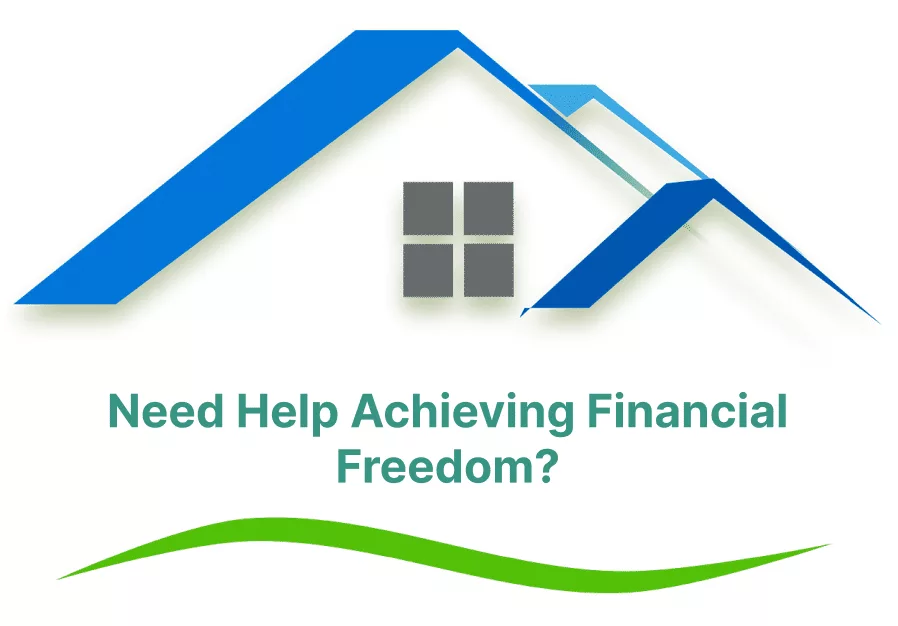If you are interested in putting your financial resources into a venture that not only promises economic returns but also contributes to a more sustainable future, you should consider sustainable real estate. With the increasing global awareness of our ecological impact, there is a growing popularity of eco-friendly developments and green buildings. Sustainable real estate is gaining momentum as an investment option, offering not only environmental benefits but also the potential for long-term financial gains.

This article aims to provide a thorough exploration of sustainable real estate, covering its defining characteristics, the advantages it offers, the challenges it may present, its potential trajectory, and a practical guide on initiating investments in this expanding market. So, get ready as we delve into the complexities surrounding the rise of sustainable real estate!
Sustainable Real Estate
Sustainable real estate involves the development of properties that prioritize minimizing their impact on the environment. This includes considering factors such as energy efficiency, water conservation, waste reduction, and the use of renewable resources. The growing awareness of environmental issues has led to an increased interest in sustainable real estate.
A key aspect of sustainable real estate is the construction of green buildings. These structures are designed to significantly reduce their carbon footprint by incorporating environmentally friendly materials and construction techniques. They often feature innovative systems like solar panels and rainwater harvesting, which reduce reliance on non-renewable resources and promote a more sustainable living environment.
Sustainable real estate goes beyond individual eco-friendly buildings. It also encompasses the planning of entire neighborhoods or communities that embody sustainability principles. These developments prioritize alternative transportation modes, such as walking or cycling, and include ample green spaces like parks and gardens. They are also designed to provide easy access to essential amenities.
Investing in sustainable real estate offers various benefits beyond financial gains. Stakeholders can enjoy reduced operating costs due to lower utility bills. Additionally, governments may provide tax incentives to promote eco-friendly infrastructure, making sustainable real estate investments even more attractive.
Sustainable real estate aims to create greener cities that prioritize the well-being of both residents and the planet. By promoting environmentally conscious practices, it seeks to establish a future where ecological responsibility and urbanization can coexist harmoniously.
Exploring the Diverse Benefits of Investing in Sustainable Real Estate
Investing in sustainable real estate offers numerous benefits that make it an appealing option for discerning investors. One key advantage is the ability to reduce the carbon footprint of a property by integrating green buildings and eco-friendly developments into a real estate portfolio. This not only contributes to environmental sustainability but also demonstrates a commitment to responsible resource management.
In addition to the positive environmental impact, sustainable real estate can yield substantial long-term financial gains. The growing awareness of individuals regarding the environmental consequences of their actions has led to an increasing demand for properties with eco-conscious design and practices. This presents a favorable opportunity for investors, as the value of sustainable real estate holdings is expected to rise alongside the demand in the market.
Sustainable buildings with energy-efficient features offer an economic advantage by reducing operating costs compared to traditional structures. This can lead to increased profitability for investors, as they benefit from lower expenses such as electricity bills and maintenance costs. The financial prudence of green buildings and eco-friendliness aligns with the broader ethos of resource efficiency and responsible resource management.
Engaging in sustainable real estate investment also carries a strong element of social responsibility. By aligning investments with ethical practices and environmentally conscious initiatives, investors contribute to the promotion of sustainability and ethical stewardship. This dual impact of environmental well-being and financial prosperity highlights the multifaceted nature of green buildings and eco-friendly investment.
Investing in sustainable real estate combines ecological consciousness with financial acumen. It not only protects the planet but also positions investors strategically to achieve significant financial rewards. This approach to real estate investment demonstrates the effectiveness of integrating values and beliefs into one’s investment strategy, fostering a holistic and purpose-driven approach to wealth creation.
Exploring the Intricate Terrain: Challenges faced in the World of Sustainable Real Estate
Investing in green buildings and eco-friendliness presents numerous benefits, but it also comes with its fair share of challenges. One of the main obstacles is the significant upfront cost associated with constructing new eco-friendly buildings or retrofitting existing structures to meet green standards. This financial commitment can be a major hurdle for investors looking to incorporate sustainability into their real estate portfolios.
The limited availability of sustainable building materials and technologies in certain regions further adds to the challenges faced by developers. Achieving a balance between ambitious sustainability goals and budget restrictions becomes complex when necessary resources are not easily accessible, making it difficult to achieve environmentally conscious construction objectives.
The absence of standardized certifications and regulations poses another critical challenge in sustainable real estate. While certifications like LEED and the WELL Building Standard exist, the lack of universally accepted benchmarks for measuring a building’s sustainability performance creates ambiguity and hinders comparability. This makes it challenging to assess and communicate the true ecological impact of green buildings and eco-friendly projects.
Another challenge arises from the perception of risk associated with sustainable projects. Some investors may consider these initiatives riskier due to the innovative technologies involved or uncertainties surrounding potential returns on investment. This perception can limit funding opportunities for sustainable development, hindering the growth of this sector.
Despite these challenges, advocates of sustainable real estate believe that the long-term advantages outweigh the initial obstacles. As technology advances and environmental awareness spreads, solutions-oriented approaches are expected to gain prominence. These solutions may include the development of more cost-effective sustainable technologies, increased availability of eco-friendly building materials, and the establishment of standardized regulations to boost investor confidence in the sustainability sector.
While the challenges facing sustainable real estate are undeniable, they are seen as stepping stones rather than insurmountable barriers by many. With an optimistic outlook fueled by technological progress and a growing societal commitment to environmental responsibility, the future of sustainable real estate appears poised for evolution and broader adoption. This will lead to a future where sustainability becomes a paramount consideration in all aspects of the real estate industry.
Looking Ahead: The Future of Sustainable Real Estate
The future of sustainable real estate is looking very promising, as more and more investors are recognizing the long-lasting benefits of eco-friendly developments. Cities around the world are setting ambitious targets to reduce their carbon footprint, which will increase the demand for green buildings in the coming years.
Governments and regulatory bodies are also taking proactive measures to promote eco-conscious development. In many countries, developers are being incentivized with tax benefits and subsidies for constructing energy-efficient properties. This collaboration between policy initiatives and sustainable real estate is expected to drive more investment in this growing sector.

Technological advancements are another key factor in the future of the sustainable real estate. Smart home systems and renewable energy sources like solar panels are becoming increasingly common in eco-friendly developments. As technology continues to evolve, these innovations will play a crucial role in enhancing both environmental sustainability and the overall quality of living.
There are challenges to making sustainable real estate mainstream. The higher costs associated with constructing environmentally friendly buildings can deter some investors. Despite this, proponents of sustainable real estate believe that the long-term benefits and returns on investment outweigh the short-term financial considerations.
Investing in sustainable real estate is financially viable in the long run. As the demand for eco-friendly properties continues to rise and carbon emission standards become stricter, early investors in sustainable real estate will not only be financially ahead but also align with an ethical imperative. The future of sustainable real estate is a convergence of economic prudence, environmental responsibility, and ethical stewardship, where sustainability is an integral part of the real estate industry’s ethos.
Taking the First Steps in Sustainable Real Estate Investing
If you’re interested in getting involved in sustainable real estate investing, there are specific steps you can take to get started. First and foremost, it’s crucial to conduct thorough research to gain a solid understanding of the fundamentals of sustainable real estate. This includes learning about green building practices, eco-friendly developments, and the principles of energy efficiency that form the foundation of sustainable real estate.
Once you have a good grasp of the basics, it’s wise to collaborate with an experienced real estate agent or investment advisor who specializes in sustainable properties. Their expertise will prove invaluable in navigating the complexities of green buildings and eco-friendly investing. They can provide valuable insights, guide you through the process, and help you identify investment opportunities that align with your financial goals.
During the due diligence phase of evaluating potential investments, it’s essential to carefully assess the sustainability features of each property. This involves examining factors like energy efficiency ratings and certifications such as LEED. It’s also important to consider the location and demand for sustainable properties from potential renters or buyers.
Before venturing into sustainable real estate investing, it’s crucial to ensure that you have a solid financial foundation. This means having appropriate financing arrangements, whether through traditional lenders or alternative options like crowdfunding platforms. A proactive approach to securing financing will position you strategically and facilitate a smoother transition into green buildings and eco-friendly investment.
To navigate the ever-evolving landscape of sustainable real estate, it’s important to stay informed about industry trends and best practices. This requires a commitment to ongoing education, staying updated on emerging technologies, and being aware of shifts in market demands. By actively staying informed, you not only position yourself as a knowledgeable investor but also contribute to the goal of making a positive impact on the environment through green buildings and eco-friendly practices.
Entering the world of sustainable real estate investing involves acquiring knowledge, establishing strategic partnerships, evaluating properties meticulously, and exercising financial prudence. By following these steps and adapting to changes in the industry, you can successfully engage in impactful investing that aligns with your financial objectives and environmental values.

In conclusion, investing in green buildings and eco-friendly offers a range of benefits for investors and the environment. While there may be challenges, such as upfront costs and varying market demand, experts predict that sustainable real estate will become increasingly prominent in the future.
Investing in green buildings and eco-friendly developments not only helps reduce carbon emissions but also provides financial returns. This is evident through energy savings, tax incentives, and increasing property values. Sustainable real estate aligns with the trend of socially responsible investing, which aims to generate profits while contributing to positive social and environmental outcomes.
To enter the sustainable real estate investment realm, thorough research is essential. This includes understanding local regulations, building certifications, financing options, and market trends. Seeking advice from experienced professionals can greatly help in making informed decisions and entering this dynamic sector strategically.
Embracing sustainability in the built environment goes beyond financial gains. It also involves creating healthier communities for present and future generations, in line with responsible investing principles. The combination of environmental stewardship and attractive financial returns demonstrates the enduring potential and positive impact of sustainable real estate on both personal and global levels.






